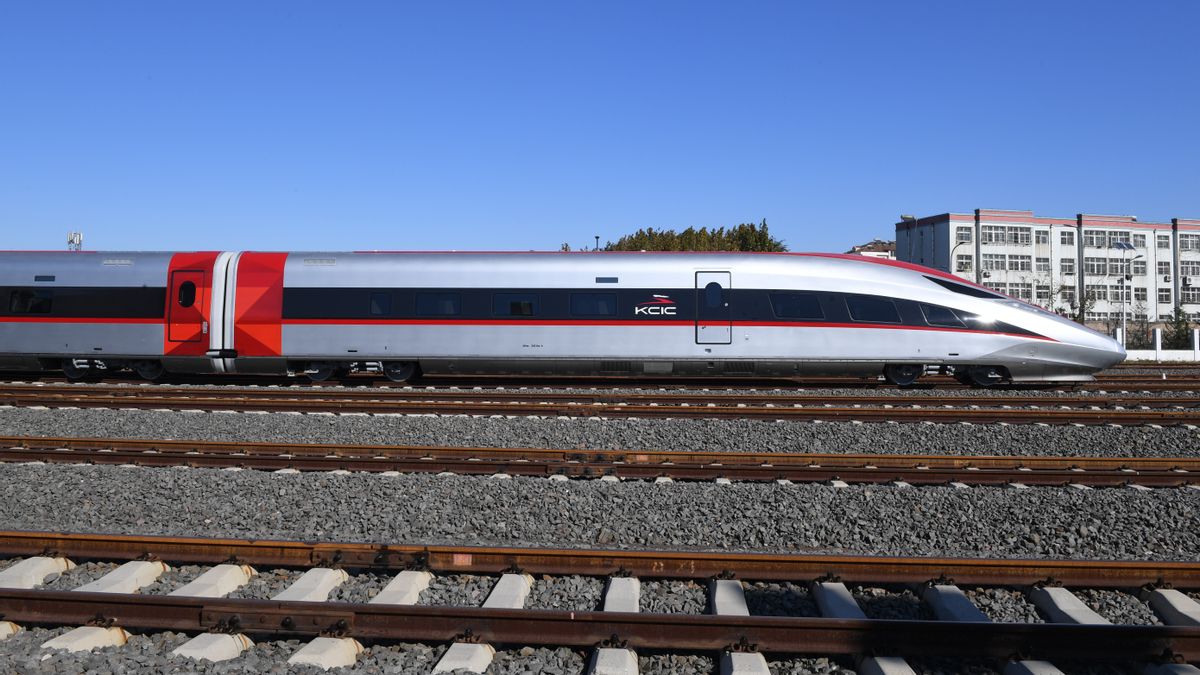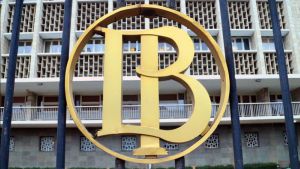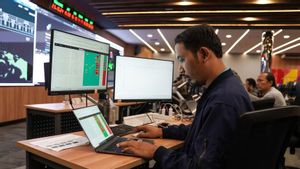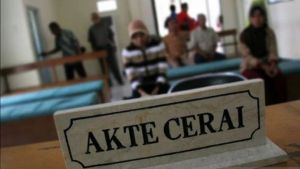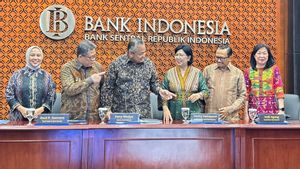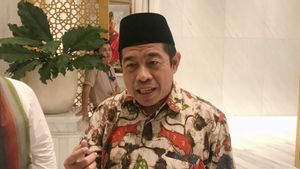JAKARTA - President Director of PT Kereta Api Indonesia China (KCIC) Dwiyana Slamet Riyadi said the Jakarta-Bandung high-speed rail (KCJB) project was proceeding as planned.
This is evidenced by the shipment of Electric Multiple Units (EMU) from China today.
"The completion of the EMU and CIT (Comprehensive Inspection Train) manufacturing is proof that this project is going according to plan," he said at the virtual manufacturing completion and inaugural delivery of EMU KCJB, Friday, August 5.
Just as an inflammation, EMU is the Jakarta-Bandung high-speed train series.
Carrying the Fuxing CR400AF type fast train platform, the implementation of the project has also been adapted to the climate and rails in Indonesia.
Dwiyana hopes that the delivery of the EMU series of fast trains from the Port of China to the Port of Tanjung Priok in Jakarta will run smoothly.
Dwiyana said, as many as 11 series of trains produced by CRRC Sifang, Qingdao, Shandong Province, China have been completed in early April this year.
Furthermore, Dwiyana said, the EMU and comprehensive inspection train (CIT) sent to the country today have completed static and dynamic tests at their production sites.
"Until now, the progress of the KCIC project has reached 85 percent, and there are still some tunnel 2 works, pre loading, track laying and station completion," he said.
Swelling Project Budget Potential
Previously, Minister of State-Owned Enterprises (BUMN) Erick Thohir said that the cost overrun or cost overrun for the Jakarta-Bandung high-speed rail project (KCJB) could rise again next year.
This was said by Erick Thohir if the project was again postponed.
Based on a study by the Supreme Audit Agency (BPKP), KCJB's budget swelled to US$1.176 billion or equivalent to Rp. 16.8 trillion.
"The fast train is the same, if the KCJB continues to be delayed, the construction price next year will be even more expensive. This means that it must be completed immediately," said Erick at the National Library, quoted on Thursday, August 4.
In the KCJB project, Erick explained that 75 percent of the financing comes from loans from the China Development Bank (CDB) and the remaining 25 percent comes from equity.
"25 percent equity, of which Indonesia is 55 (percent), China is 45 percent. What does that mean? PMN to be given is part of equity, because the loan will be added," he said.
Previously, the proposal of PT Kereta Api Indonesia (Persero) for the addition of State Capital Participation (PMN) in 2022 of IDR 4.1 trillion had been approved by Commission VI of the Indonesian House of Representatives.
The PMN will be used to strengthen KAI in completing the KCJB project.
At the end of 2021, Erick said, the KCJB project will not be stopped.
Because, when he was appointed by President Joko Widodo (Jokowi) the construction of the project was already running 60 percent.
"This is when I entered (as SOE Minister), the KCJB project was more than 60 percent. Is it time to stop? Yes, it means that if you stop, the money will be burned. Everything becomes scrap metal," he said at the Kick Andy Show, quoted Monday, November 15, 2021. .
For your information, the work on the KCJB project tends to slow down since it was built in 2016.
Until October 2021, the construction of KCJB has only reached 80 percent and is targeted to operate commercially in 2023.
One of the things that hinders the development of the KCJB project is land acquisition.
Whereas previously the government ensured that land acquisition for the project was completed in January 2020. Then another problem was the change in construction design.
The English, Chinese, Japanese, Arabic, and French versions are automatically generated by the AI. So there may still be inaccuracies in translating, please always see Indonesian as our main language. (system supported by DigitalSiber.id)
